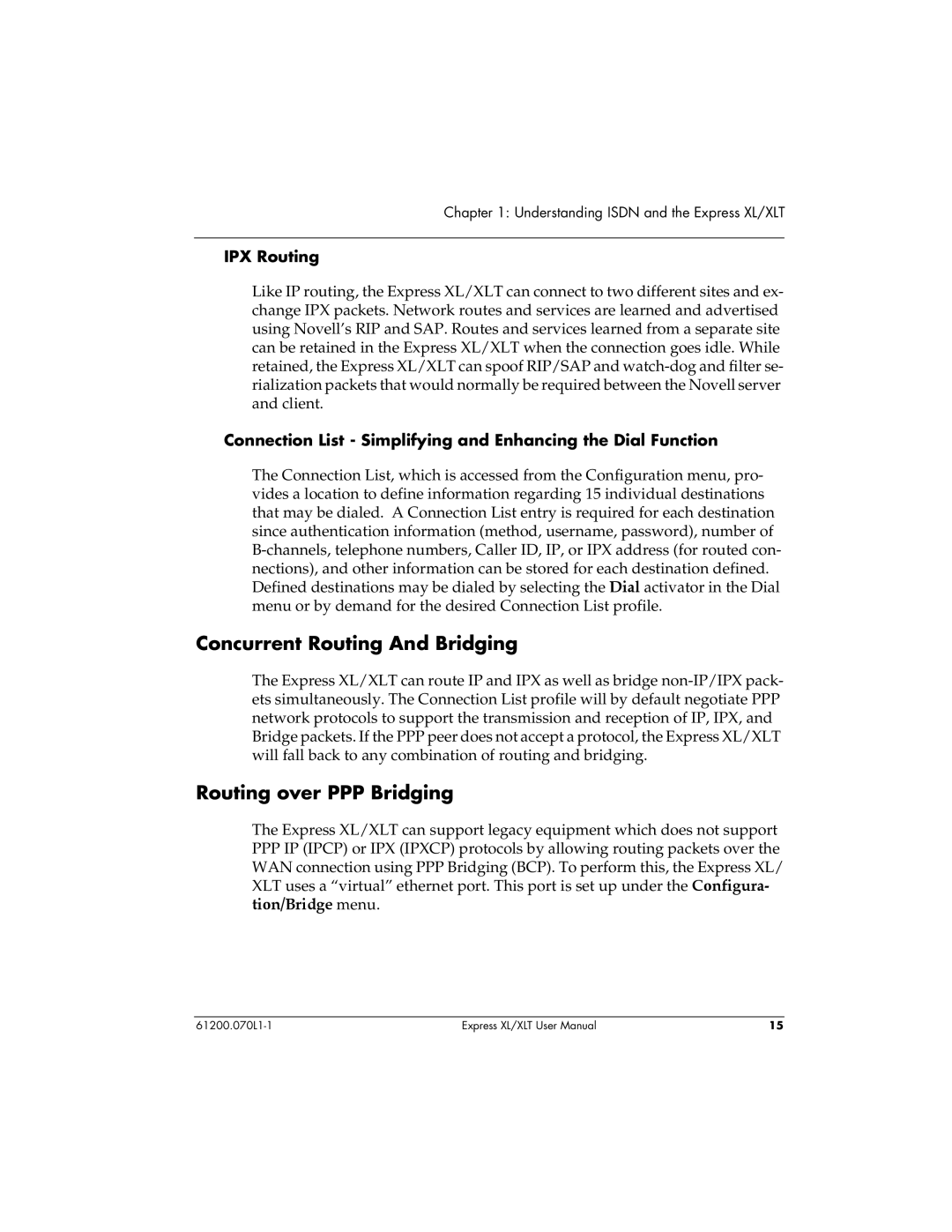
Chapter 1: Understanding ISDN and the Express XL/XLT
IPX Routing
Like IP routing, the Express XL/XLT can connect to two different sites and ex- change IPX packets. Network routes and services are learned and advertised using Novell’s RIP and SAP. Routes and services learned from a separate site can be retained in the Express XL/XLT when the connection goes idle. While retained, the Express XL/XLT can spoof RIP/SAP and
Connection List - Simplifying and Enhancing the Dial Function
The Connection List, which is accessed from the Configuration menu, pro- vides a location to define information regarding 15 individual destinations that may be dialed. A Connection List entry is required for each destination since authentication information (method, username, password), number of
Concurrent Routing And Bridging
The Express XL/XLT can route IP and IPX as well as bridge
Routing over PPP Bridging
The Express XL/XLT can support legacy equipment which does not support
PPPIP (IPCP) or IPX (IPXCP) protocols by allowing routing packets over the WAN connection using PPP Bridging (BCP). To perform this, the Express XL/ XLT uses a “virtual” ethernet port. This port is set up under the Configura- tion/Bridge menu.
Express XL/XLT User Manual | 15 |
